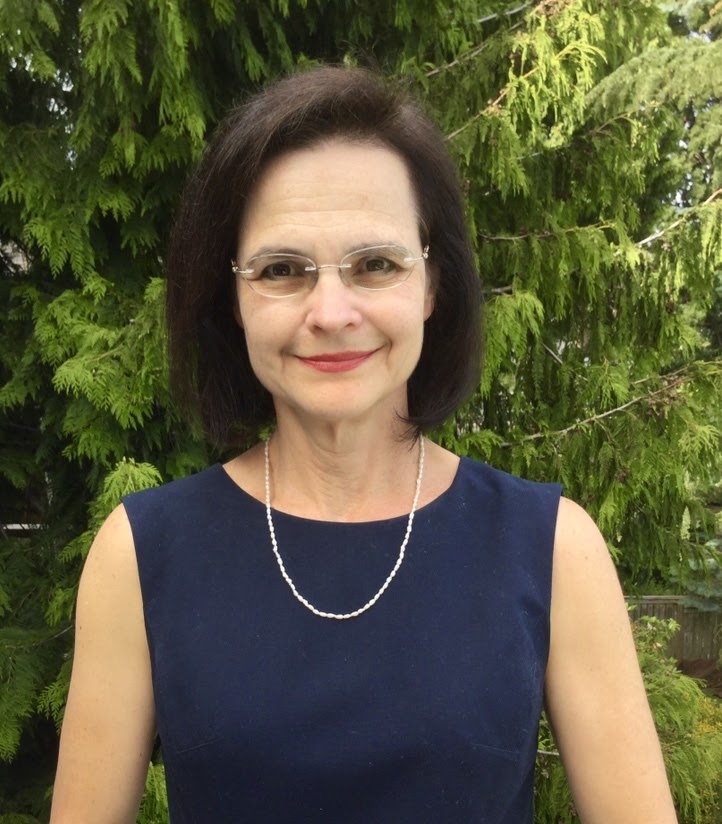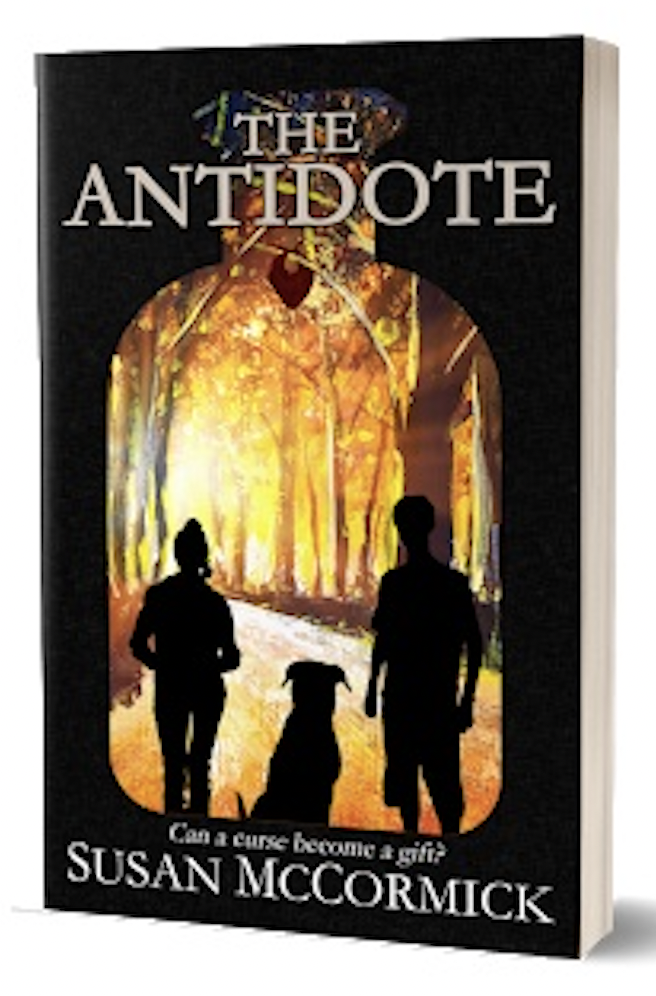Day jobs can be essential, especially for writers starting out. Sometimes those jobs can feel like a drain–of energy, of creativity, of joy. But often, skills you develop on the job can actually help with your writing. This series, comprised of interviews and posts from authors for children, focuses on how non-writing work has helped writers with their craft. We hope you might glean some craft tidbits from their experiences and that you might look for how your other interests enrich your writing. –KidLit Craft
interview by Anne-Marie Strohman
KidLit Craft: Hi, Doctor McCormick. Welcome to KidLit Craft! Can you briefly tell us about yourself as a doctor and a novelist? How did you come to write middle grade fiction?
Susan McCormick: I’m a doctor by day, and always wanted to be a doctor and a writer. (And a ballerina, but my first curtsy crashed the backdrop to the floor and crushed those dreams.) Several years ago, my cozy murder mystery series, The Fog Ladies, was published, with spunky senior sleuths and an overtired young medical resident who all live in an elegant apartment building in San Francisco. Book 3 comes out this fall, and I love writing about this group of feisty women friends.
However, a volunteer experience in my son’s middle school classroom inspired my new book, The Antidote, a middle grade medical fantasy: the chicken wing dissection. I was ready to scintillate the sixth graders by demonstrating the exciting connection between muscles and tendons and bones. They were interested, but not nearly as interested as in another subject they were studying. Mythology.
Thanks to Rick Riordan’s The Lightning Thief series, they already knew a lot about Greek gods and were eager to learn more. I wanted to create as much enthusiasm for the human body, health, and disease as they had for beasts with multiple heads and fathers who swallowed their children whole. The Antidote, about a boy who can see disease and battles an ancient evil and creator of disease, weaves maladies and pandemics of the past into an adventure story of disease, darkness, and deception.
KLC: What of your experience in medicine helped you in writing your novel?
SM: For both professions, you have to put yourself in someone else’s shoes. And, just like I listen to understand with my patients, I had to listen to my characters, as some of them had different ideas about what was going to happen to them than I did. In The Fog Ladies, Enid Carmichael discovered Starbucks lattes at the ripe old age of eighty. She loves the bitterness, the froth. I wrote that. Then she craved more, and the next thing I knew, she was stealing Starbucks coupons from her neighbors’ newspapers to feed her addiction. I never intended for her to steal. She did that. Not me.
In The Antidote, Alex meets a girl who helps him on his quest. I wrote the girl, but she gave herself blue hair and a very sad backstory, one I never would have created and one I would have missed if I hadn’t let her tell it herself.
KLC: What is different about writing novels from what you expected?
SM: Being a doctor, I am very methodical and plan carefully. I review every decision several times to make sure it is sound. I thought that would translate to my writing, and I did have a basic outline and characters planned out in my head. But during that flowing first draft, with fingers flying on the keyboard, characters took over and acted in unexpected ways. A little family appeared out of nowhere in The Fog Ladies, teen mother Chantrelle, Baby Owen and the ne’er-do-well daddy, Big Owen. The story is richer for this family, and they provide humor, like when Chantrelle feeds Baby Owen chips and Pepsi and he gets gassy, and they provide poignancy, like when Chantrelle realizes her life is not how she imagined.
In The Antidote, I gave the dog hideous breath in honor of a dog I once had, and the breath turns out to play a key role in the story, completely unplanned until the words were typed. This magic of writing is a wonderful and unanticipated discovery.
KLC: What was different about writing for a middle grade audience, rather than for an adult audience?
SM: The Fog Ladies have life experience to draw on. Their memories and past relationships make their characters complex and relatable, and also help them in the present. In The Antidote, Alex Revelstoke is twelve. He cannot rely on past life events to get him out of trouble. I had to think carefully about the parents and how I portrayed them. They could not supply him with the answers, either. He has to figure everything out on his own. I was also cognizant of my descriptions of the diseases in the book. I wanted to give just enough to spark an interest but not too much to bog down the reader, who wants the adventure to move along. At the back of the book, I added a Catalog of Infectious Diseases for the curious.
KLC: What lessons did you learn in translating your medical work to novel writing that would be helpful to other writers?
Three things. First, super important in all my years of medical training and then every day of my life as a doctor, and super important for any life endeavor or career: Show up, on time, with a smile on your face and with enthusiasm. Sit down and write. If you don’t sit down and write, you will never be a writer.
Second, I loved putting Easter eggs in the stories, little hidden gems. Each of my books has a medical theme. I wrote a lighthearted picture book about Alzheimer’s disease and dementia, Granny Can’t Remember Me. The Fog Ladies has a young doctor character and the first book’s mystery turns on a medical diagnosis. The Antidote is about a family of doctors going back generations and a boy who can see disease. The book is chock full of medicine. But each book also has several public service announcements hidden inside. In The Antidote, I describe how to do a Heimlich maneuver and when to use an AED, an Automated External Defibrillator. In the cozy mysteries, get your colonoscopy, don’t cut a bagel in your hand, and don’t get a jailhouse tattoo. So, put something of yourself in your stories that you want to pass along.
Third, accept the unexpected. Sometimes as a doctor, a diagnosis that had eluded me would appear in the night or while I was running or in the shower. These messages from my inner brain were always right. Similarly, accept any magic that pours from your fingers while writing, or any miracles that come while your brain is on break. These ideas from nowhere are often the best.
Thank you, Dr. McCormick, for sharing your experiences and wisdom with us!

SUSAN McCORMICK is a writer and doctor who lives in Seattle. She graduated from Smith College and George Washington University School of Medicine and served as a doctor for nine years in the U.S. Army before moving to the Pacific Northwest and civilian practice. In addition to “The Antidote,” she writes a cozy murder mystery series, “The Fog Ladies.” She also wrote “Granny Can’t Remember Me,” a lighthearted picture book about Alzheimer’s disease and dementia.
She is married with two boys, neither of whom have any special powers. She loves giant dogs and has had St. Bernards, an English Mastiff, Earl, and two Newfoundlands, Edward and Albert. None of them had any special powers, either, except the ability to shake drool onto the ceiling. Visit her at https://susanmccormickbooks.com.
For more of our Day-Job Connection series, check out these posts:
Aimee Lucido, Computer Programmer
Gregg Millman, TV and Screenwriter
Anne-Marie Strohman (co-editor) writes picture books, middle grade novels, and young adult short stories and novels. She is trained as a teacher, an editor, and a scholar, specializing in Renaissance Literature. She holds an MFA in Writing for Children and Young Adults from Vermont College of Fine Arts and is an active member of SCBWI. Find her at amstrohman.com and on Twitter @amstrwriter.


Thank you for this interview! For the curious, there is a free accompanying curriculum guide chock full of more information and videos about the diseases from the book.